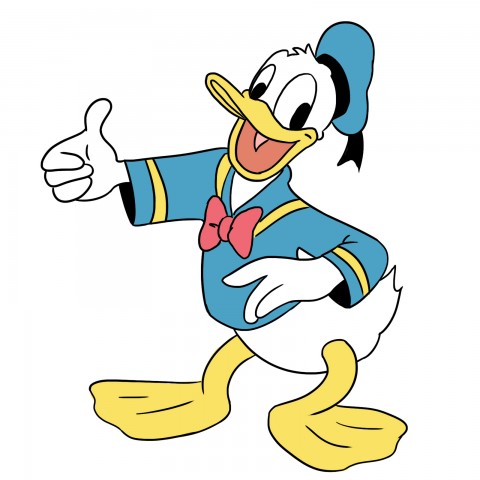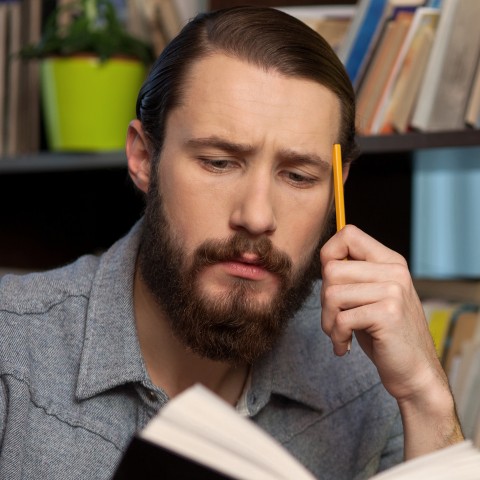
When you want to go beyond your textbook and your classroom, you’ve got two basic escape routes.
The first is the written word. You could read blogs, newspapers, or books in Arabic. Not a bad idea—but it still sounds suspiciously like work.
What if you just relaxed your way into Arabic in a way that let you become more fluent with the language, more educated about the culture, and more knowledgeable about art in general?
What if you watched a bunch of Arabic movies?
If you’ve never watched Arabic movies before, well, of course you’re missing out. But you’re probably also misinformed.
Cinema around the world is not, generally speaking, kind to Arabs on screen. It’s not hard to think of examples. That’s why it’s important to open your mind beyond stereotypes and understand what cinema looks like when it’s made by and for Arab people.
Fortunately, in recent years more and more festivals are promoting Arabic-language films. That’s even happening outside Cairo, long considered one of the focal points of Arab cinema.
So in this article you’ll be introduced not only to the classic films that shaped the art form, but you’ll also find some modern favorites that have gained international acclaim. After all, quality learning and fun are what we strive for at ArabicPod101.com. Let’s get started with our Arabic movies list!
Note: If you’re wondering where to watch Arabic movies, there’s a chance you’ll find some Arabic movies on Netflix or YouTube. You can also try searching for these Arabic movies online. Here are some tips to improve your pronunciation while watching movies in Arabic.

Table of Contents
- The Sin
- The Mummy
- Kandisha
- Solitare
- West Beirut
- The Worthy
- Omar
- Blessed Benefit
- Far from Men
- Theeb
- Dubbed Disney Films
- Conclusion

1. The Sin (الحرام Al-Haram) — Modern Standard Arabic, 1965

Maybe you thought all Arabic cinema was happy and upbeat? Nah.
The Sin is a grim and moving portrait of peasant oppression in Egypt. Faten Hamama plays Azizah, a young farmer’s wife, who’s forced to not only bear terrible injustice but also to keep it secret lest it tear apart her family. That’s a simple summary, though the film pulls this narrative thread in a way that makes it clear it wasn’t an isolated incident at that time.
It’s the type of film that makes you stop and think about the world, and it certainly had that effect upon its release. The French newspaper Le Monde described the film as “a reflection of everything around one individual, from people to culture.”
As was common in the middle of the 20th century, the film was released in Modern Standard Arabic. This decision was seen as only natural because of the prestige of Modern Standard Arabic in literature and formal discourse. Later, of course, cinema in vernacular Arabic became the norm, particularly in Egypt.
2. The Mummy (المومياء Al-Mummia) — Modern Standard Arabic, 1969

No, this isn’t a dub of that action movie with the bad CGI. Instead, it’s a slow-moving and eerie piece about grave robbing in the late 1800s.
The film is about searching for an Egyptian national identity among colonialism, war, and antiquity. The band of grave robbers, an Upper Egyptian tribe, has a dissenter who goes to the police and helps the authorities find the cache of ancient treasure.
It’s considered one of, if not the most, important film(s) in Egypt, though as it’s more methodical and pensive, it’s not most people’s first choice.
But for you as an Arabic learner, this is a great opportunity to hear relatively slow and clear Modern Standard Arabic even in a relatively conversational context. You can even find subtitles in Arabic and English for the whole film!
3. Kandisha (قنديشة Qandisha) — Moroccan Arabic, 2008
Lawyers are considered to be clear and logical thinkers. They’re the last people you would expect to be wrapped up in a supernatural mystery.
Nyla Jade (played by Amira Casar) is a defense attorney for a woman accused of murdering her husband. Her client firmly alleges that her husband was killed by the vengeful spirit Kandisha.
Kandisha is actually a medieval Moroccan legend, and in the film she’s far more than just a myth. Nyla becomes convinced as well, and must work to make everyone in the courtroom, her colleagues, and her own husband believe that Kandisha was responsible for the murder.
The film has dialogue in French, Moroccan Arabic, and English, accurately reflecting the multilingualism present in modern-day Morocco.
4. Solitare (محبس Mahbas) — Lebanese Arabic, Syrian Arabic, 2016
The timeless tale of a mother disappointed in her daughter’s choice of husband is honed to razor perfection in this comedy from Lebanon.
Therese (Julia Kassar) has borne a grudge against Syrians for decades when her daughter Ghada (Serena Chami) turns out to be engaged to Samer (Jabar Jokhadar), a Syrian man. Nobody wants to tell Therese, but the truth comes out when Samer greets her with his Syrian Arabic.
Arab weddings are far more than personal affairs. Whole families are involved in every aspect, and a disapproving parent on one (or both) sides can spell disaster for the couple.
The film shines light on Lebanese-Syrian relations through the mirror of baseless prejudices held by individuals. For the learner of Arabic, the snappy dialogue and fast exchanges between two similar yet distinct varieties of Arabic are a goldmine of authentic experience.
If you’re interested in watching Arabic comedy movies, we highly recommend this one.
5. West Beirut (بيروت الغربية Bayrut Algharbiat ) — Lebanese Arabic, 1998
When a civil war happens in your country, it may not seem real at first. Especially if you’re just beginning to enter the adult world.
That’s how Tarek (Rami Doueiri) and Omar (Mohamed Chamas) find themselves feeling in the year 1975 when Beirut erupts into war. No school! No rules! But it’s not a vacation that ends in September.
It’s a new and uncertain era for them and everyone they know. The film is about how young people can discover for themselves what’s most important in their lives when the system that held them in place for all their lives begins to crumble.
Truly breathtaking cinematography lends the scenes of conflict a gripping realism that will keep you on the edge of your seat. And, of course, the Lebanese Arabic spoken throughout is as authentic as can be, pulled straight from the memories of the director himself.
6. The Worthy ( المختارون Almukhtarun) — Many dialects, 2016

For some reason, nobody ever thinks of post-apocalyptic dramas in the Middle East. And yet in a region plagued by drought, the question of who should get water as civilization crumbles becomes magnified.
Director Ali F. Mostafa expertly uses his limited budget to build an intense, gripping character drama about mysterious and smooth-talking newcomers to a small band of survivors guarding the only water source for miles around.
As the film goes on, it turns more into horror as the group starts to turn against itself, deciding who should live and who should die. In other words, who counts as “worthy.”
There are twelve main characters, and since borders have collapsed in the world of the film, they come from across the Middle East—Syria, Israel, Jordan, Palestine, and Saudi Arabia. They all speak in their own dialects, which are similar enough to be understood by native speakers or advanced learners.
7. Omar (عمر Umar) — Palestinian Arabic, 2014
They say that war pits brother against brother and friend against friend.
That concept is explored against the backdrop of Israeli-Palestinian conflict—with a love triangle thrown in to boot.
When Omar (Adam Bakri) is captured by Israeli security forces, he’s made to inform against his childhood friends Tarek and Amjad. This is made all the more excruciating by the fact that he and Amjad are both deeply in love with Tarek’s sister Nadeen.
The feeling of being trapped, the feeling of being forced to choose between terrible outcomes—those are everyday feelings in zones of conflict. The film was shot on location: Omar was born in Nazareth and the film was mostly shot there. So what you see on screen is as authentic as it gets.
You may not know that many Israelis speak Palestinian Arabic natively or as a fluent second language. In this film you’ll hear bits of Hebrew, but mainly Palestinian Arabic from the principal characters.
8. Blessed Benefit (انشالله استفدت inshallah istafadet) — Jordanian Arabic, 2016
How about a comedy to lighten things up? A prison film might sound like a recipe for a dark drama full of brutality and terror, but not if the film depicts prison life as saner than life on the outside.
Ahmad (Ahmad Taher) is an unlucky contractor thrown in jail for three months for failing to deliver on a project. The people he meets inside turn out to be from all levels of Jordanian society, and they share with him their own life philosophies.
Gradually, Ahmad comes to ask himself: If all of my needs are taken care of in prison, what good is being free?
The dialogue and editing is fast-paced and quick-witted. Some jokes are international, but others might go over your head if you haven’t spent time in or around Jordan—or in a prison.
9. Far from Men — Algerian Arabic, 2015
Algerian Arabic isn’t the only language in this movie, but it’s a very important one.
Viggo Mortensen plays Daru, a schoolteacher in rural Algeria. Right at the start of the revolution against the French, he’s assigned the duty of escorting a murderer (Reda Kateb) across the desert to his trial.
Their long journey is speckled with thoughtful discussion about the nature of guilt and innocence, and over the course of the film you may not be certain what either character is headed toward.
Viggo Mortensen is a talented language learner, and for this particular role he learned to speak Algerian Arabic, which he uses along with French and Spanish in the film.
He’s the type of person to throw himself into a film role, and therefore he actually went so far as to translate all of his lines into Arabic just in case the director changed his mind about the language that should be used for a particular scene.
10. Theeb (ذيب Theeb) — Bedouin Jordanian Arabic, 2014
This is a beautiful period piece set during the First World War, though that’s only a backdrop to the dramatic events that unfold in the desert between a relatively small cast of characters.
Theeb (Jacir Eid Al-Hweitat) is a young Bedouin boy living in a remote part of what was then the Ottoman Empire. His older brother agrees to lead a British officer across the desert, and Theeb sneaks along for the adventure.
But there’s more danger in the desert than sand and sun. Tribes of bandits lurk in the (stunningly beautiful) canyons, and before long, Theeb and his brother Hussein are living off their wits alone.
The film was purposefully made in the local Bedouin dialect of a particular part of Jordan. In fact, the filmmakers were so dedicated to authenticity that they were forced to write all the women out of the story—local women weren’t willing to act, and professional actresses wouldn’t know the dialect.
11. Dubbed Disney Films — Egyptian Arabic, Modern Standard Arabic

The Walt Disney Company has released films drawing inspiration from all over the world. In the interest of sharing the stories as widely as possible (and making money), Disney films have traditionally been dubbed into many languages for international release.
The Disney films of the 1990s were dubbed into Egyptian Arabic. By that time, Egyptian Arabic was already well-established as a widely-understood dialect all around the Arab world. It was amazing to hear Disney characters speak authentic and hilarious slang with voices of some of the best-known Egyptian actors and comedians.
In the early 2010s, however, Disney made the decision to dub films in Modern Standard Arabic for the Arabic market. Some people supported this, but the reaction on social media—in Egypt particularly—was overwhelmingly negative. No matter how hard the translators and voice actors worked to breathe life into the characters, the fact remained that it just felt strange to hear people quipping and joking in Modern Standard Arabic when nobody did that in real life.
They even went so far as to re-release their classic films in Modern Standard Arabic. That is, until the social media pressure and the poor box office performance of some Modern Standard Arabic films finally worked. In 2017, the company began to reverse their decision, and now Egyptian Arabic is back to being the dubbing dialect of choice.

12. Conclusion
Taking on a language like Arabic, spoken in so many countries by people from so many backgrounds, can seem like an insurmountable challenge. It may be a good idea to watch Arabic movies with English subtitles if you’re a beginner.
But the way people grow up in those countries is shaped by movies as well. Film is an indispensable part of anyone’s cultural consciousness these days. By seeing how stories play out through the lens of other cultures, you can start to see what they think of as “normal,” “strange,” or “right and wrong.”
And that knowledge will go incredibly far toward making you competent with the language.
So if you’ve never even seen a single Arabic-language film, why not start with these? They’re the perfect start to an incredible world. We hope that ArabicPod101 helped you find just the Arabic movie you need to increase your learning power and have fun in doing so!
If you found this article helpful and want to learn even more about Arabic culture, you can check out our other insightful blog posts, study with our free vocabulary lists, and even upgrade to use our MyTeacher program and learn with your own personal Arabic teacher. We wish you all the best and some uninterrupted Arabic-language movie watching time!
We truly hope you’ll start watching Arabic movies in 2019!

Author: Yassir Sahnoun is a HubSpot certified content strategist, copywriter and polyglot who works with language learning companies. He helps companies attract sales using content strategy, copywriting, blogging, email marketing & more.
Start with a bonus, and download the Must-Know Beginner Vocabulary PDF for FREE! (Logged-In Member Only)










